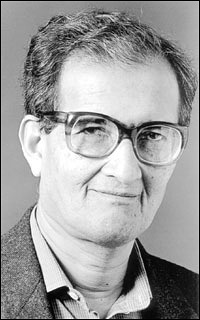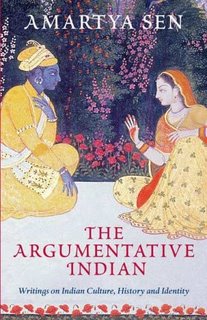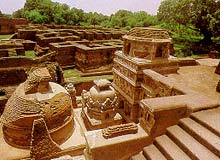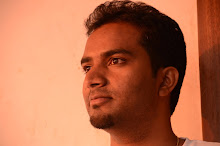The Argumentative Indian
I first heard of Amartya Sen when he brought us our first Economics Nobel some years back(1998 to be more precise).
 Later sometime I got to watch him giving an interview to NDTV.
Later sometime I got to watch him giving an interview to NDTV.The depth of knowledge and understanding he possessed on topics ranging from Indian society to International economics was all oozing out in his answers.
Sen's profile is astounding to say the least. http://www.nd.edu/~kmukhopa/cal300/sen/amartyaProfile.htm
Professor at Harvard, Cambridge. The number of Doctorates and Awards he's won is staggering. It won't take much time for anybody to develop respect for the phenomenon called Amartya Sen.
Some months back, I happened to come across one of his writings while browsing on the net.
"The argumentative Indian" - a collection of essays he'd written on India.
As I got my hands on one of the copies from a road-side book-seller, I couldn't wait too long to start reading it - given my interest in Indian history and considering that Mr. Sen was such an authority on Economics.
The book is a complete intellectural's offering. Something, as the Hindustan Times says, "every Indian should read". Its not difficult to know why.
All of us remember how history used to be told , rather taught at school.
Dry, themeless stories. We would get an impression that the bygone India was full of events where Rajas and Maharajas (kings and Emperors) kept fighting with one another. But Indian History is more than just that. Its something we all needed to be told in a way we all could be
 proud of as growing up citizens. For it's not an average civilization by any stretch of imagination. Not every society can boast of a history of having the oldest known university (Nalanda), of having scientists talk about earth revolving around the sun(Aryabhatta in 5th century AD), a history which had surgeons performing surgeries without anaesthasia(Charaka, Sushrutha around 2nd century AD). Achievements in fields of Astronomy, Mathematics, Medicine, Spirituality, Architecture, urban-planning, you name it,arguably everything recorded much before any other civilization could boast of.
proud of as growing up citizens. For it's not an average civilization by any stretch of imagination. Not every society can boast of a history of having the oldest known university (Nalanda), of having scientists talk about earth revolving around the sun(Aryabhatta in 5th century AD), a history which had surgeons performing surgeries without anaesthasia(Charaka, Sushrutha around 2nd century AD). Achievements in fields of Astronomy, Mathematics, Medicine, Spirituality, Architecture, urban-planning, you name it,arguably everything recorded much before any other civilization could boast of.Achievements which have not been given its due attention, specially by the narrow-minded, indifferent western historians of the modern world.
This is where Dr. Sen comes up with the salvaging act.
Dr. Sen gives us a different but absolutely stimulating account of Indian history. By documenting the Spirit of Reasoning that punctuated the whole length of Indian history.
By highlighting the argumentative spirit that existed and that shaped the society we live in, he makes India, thats gone by look like an Debating Arena, a center for reasoning excellence.
He explores the origin and progress ofIndian tradition of sceptical thinking thats shaped our society, quoting eloquently, various events from Indian history.
Topics ranging from Inequality, Women's rights, Western perception about India, Religious debates and seminars, ancient India's global connections have all been discussed shedding light on the spirit of reasoning that hyphenated them.

The Nalanda University attracted large number of Buddhist students from different parts of the world. The University of Nalanda was founded in the 5th century by the Gupta rulers
I write this blog out of sheer appreciation for what I read in the book. Given all the cultural and scientific achievements ancient India had made. For all the intellectual developments she had seen. And the riches it had garnered. You might wonder why we as a nation are not as sophisticated as we should have been. Why we have'nt made as much of progress in every field our ancestors had already given tremendous kickstart on, quite long times back. Why we as a nation having millenias of history, still lag in these fields compared to nations that came to be knows only a few centuries back. Perhaps its time for each one of us to wear the nation's pride on our sleeves and restore the glory of our motherland. Perhaps its time for us to be more serious about our duties.

